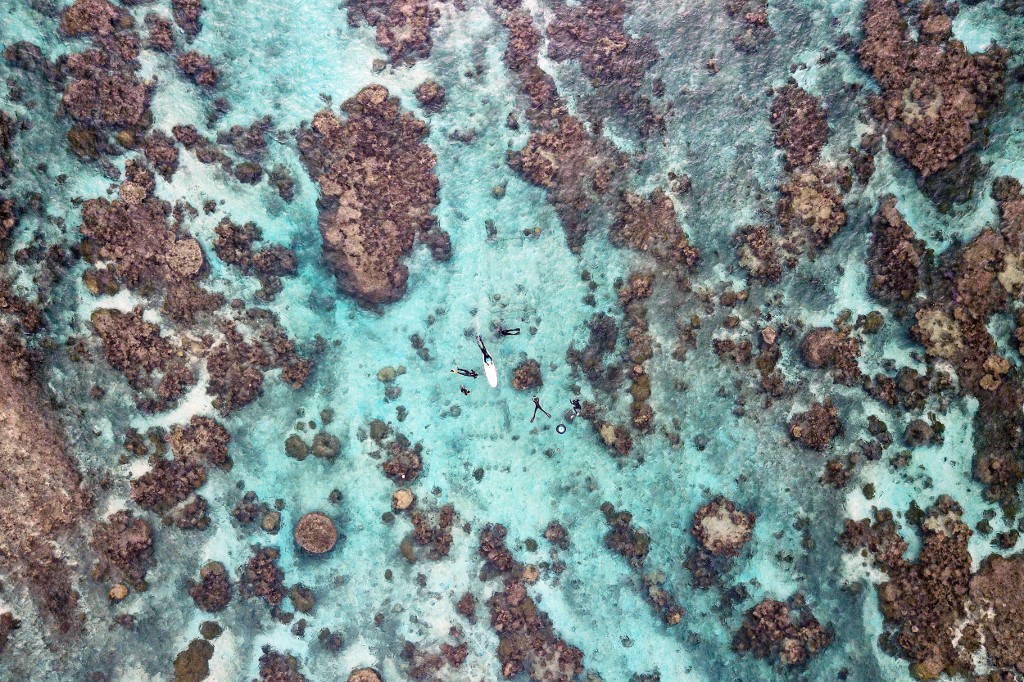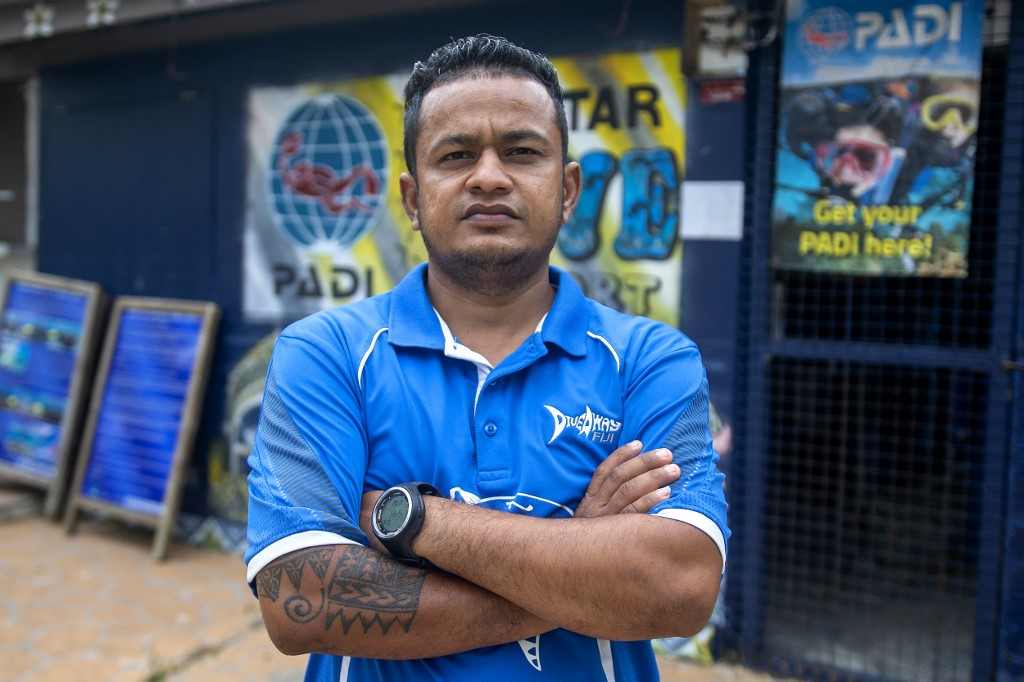

by Leon LORD
Agence France-Presse
CORAL COAST, Fiji (AFP) — Fiji dive operator Ashwin Pal was living his dream until the global pandemic hit, guiding tourists around an underwater wonderland of dazzling Pacific coral reefs.
Now the 35-year-old hunts the neon-hued fish he once proudly showed off to international visitors, forced to kill the creatures he loves to feed his wife and four children.
And the coronavirus-induced shutdown of Fiji’s tourism industry is not the only crisis facing Pal’s Coral Coast paradise, with climate change posing a longer-term threat to the region’s marine environment.
“Lots of coral’s been bleached, lots of corals are dying — soft coral, hard coral — to be honest,” Pal told AFP.
Fiji is also regularly pounded by category five super-storms, with Cyclone Yasa the latest to menace the island nation of 900,000 this week.
Such top-of-the-scale monsters were once rare, but many scientists and Prime Minister Frank Bainimarama blame their increased frequency — and the accompanying damage to coral and tourism infrastructure — on climate change.
It has created an uncertain future for Pal and many thousands like him across the Pacific, who rely on tourism and a climate-vulnerable environment for their livelihoods.
‘Life’s pretty tough’


The Manila-based Institute for Climate and Sustainable Cities said the pandemic had exacerbated climate challenges facing Pacific island nations that were not of their making.
“Tourism has all but evaporated, remittances have shrunk to a trickle, and disruptions to international trade have come as a hammer blow,” executive director Red Constantino told AFP.
“And no help seems to be forthcoming from their wealthy neighbours,” he added, pointing the finger at Australia and New Zealand which have both been accused of lagging on climate.
Pal opened his dive shop three years ago, fulfilling an ambition created when he first took scuba lessons as a teenager.
But with no overseas visitors in Fiji, the beachside hut he operates from a high-end resort is shuttered and all staff have been laid off as Pal scrapes by on his savings.
“I’ve been at home for the past eight months, there’s been no income coming in,” said Pal, a father of four boys.
“Life’s been pretty tough. To make a living I switched from diving into farming and, since I love the ocean, fishing.
“Once, twice, three times a week we go out (fishing), do a bit of vegetable farming to keep my family running.”
Reefs ‘first to go’
On a palm-fringed beach a few kilometres from Pal’s dive shop, marine biologist Victor Bonito outlines his decades-long struggle to preserve Fiji’s coral reefs.
The frustration evident in his voice as he explains the scale of the challenge and the need for urgent action.
“In 2014, 2015 and 2016 we experienced coral bleaching on reefs all around Fiji, mainly shallow, near-shore reefs,” he said.
“Here on the Coral Coast we lost 30-60 percent of the reef area in a matter of weeks — there are the reefs where tourists would be snorkelling, just off the beach.”
Bonito’s Reef Explorer Fiji has been farming strains of heat-tolerant coral to replenish the reefs, but he says it will not be enough without meaningful action to address climate change.
“Stop with the talking and planning,” he said.
“If we don’t have a global commitment and we don’t take serious action on a global scale, our coral reefs — not just in Fiji but around the world — are going to be one of the first ecosystems to go.”
Bainimarama warned this month that the Pacific’s environment was a bellwether for the health of the planet as a whole and a way of life would be lost without concerted action to save it.
“We Pacific nations owe it to our people, and to humanity as a whole, to raise our voices more to demand that major emitters step up their climate actions and commitments,” he said.
“Without this, we will lose our homes, our way of life our wellbeing and livelihoods — it’s past time to get serious.
© Agence France-Presse
